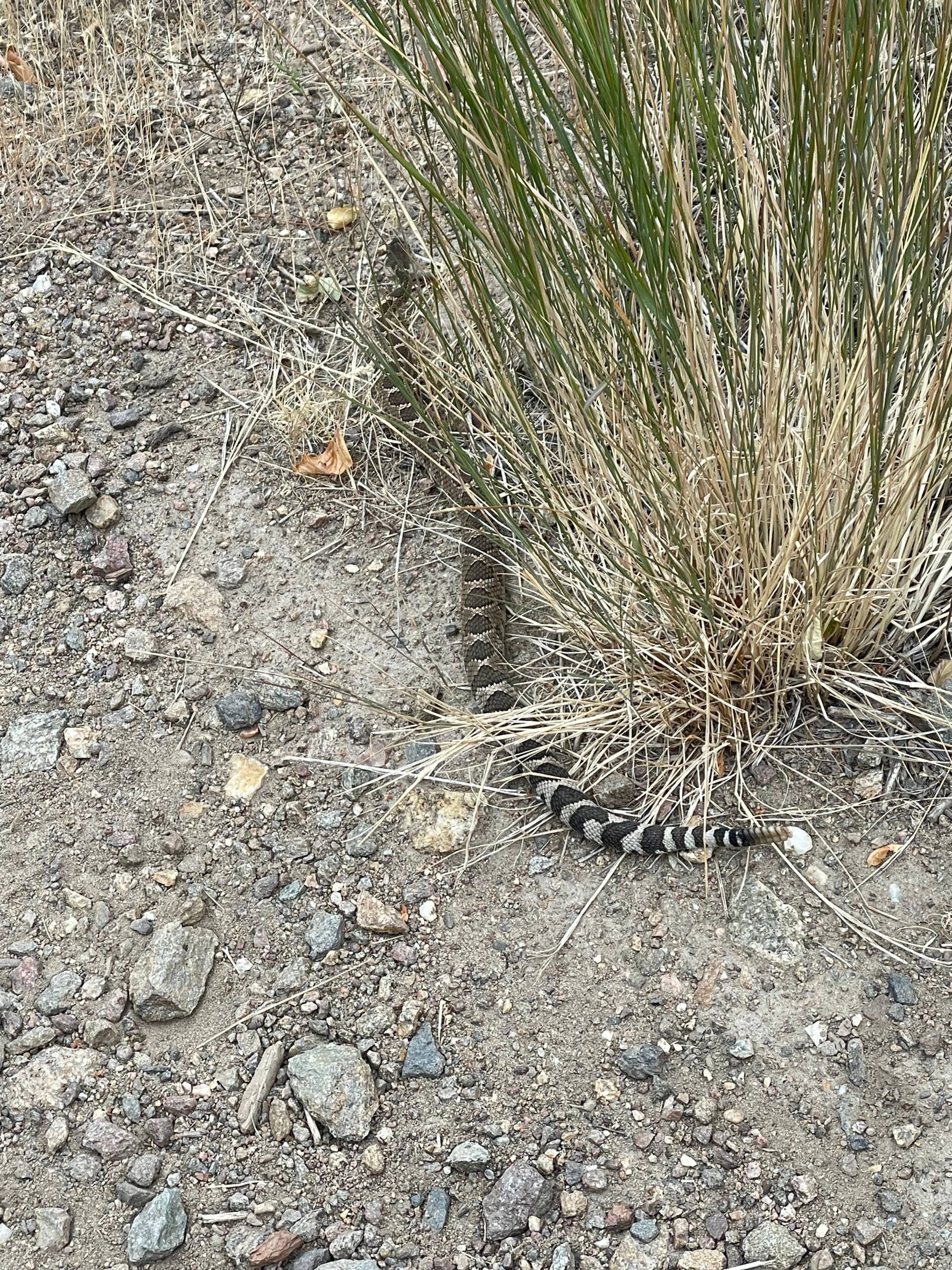
Identifying the Culprit: Rattlesnakes
In many parts of the world, particularly North America, rattlesnakes are among the most common venomous snakes encountered on hiking trails. They are easily recognizable by the rattle at the end of their tails, which they use as a warning sign when feeling threatened.

Warning Signs of a Snake Bite
- Immediate Pain and Swelling: If your pet gets bitten by a snake, you might notice immediate signs of pain and swelling around the bite area. The severity of the reaction can vary depending on the snake’s species and the amount of venom injected.
- Fang Marks: Look for small puncture wounds at the site of the bite. These marks can help identify the source of the bite.
- Bruising and Discoloration: Over time, the bitten area may develop bruising and discoloration.
- Lethargy and Weakness: Venomous snake bites can cause weakness and lethargy in pets. Your dog may also have difficulty standing or walking.
- Difficulty Breathing: In severe cases, snake venom can affect the respiratory system, leading to labored breathing or even collapse.
What to Do if Your Pet Is Bitten
If you suspect your pet has been bitten by a snake, follow these steps:
- Keep Calm: Try to remain calm to keep your pet calm as well. The more excited your pet becomes; the faster venom can spread through their system.
- Carry Your Pet: If possible, carry your pet to avoid additional exertion.
- Remove Collars: Loosen or remove any collars or tight items around your pet’s neck to ensure unrestricted blood flow.
- Seek Veterinary Help Immediately: Contact a veterinarian or emergency animal clinic as soon as possible. Time is crucial when dealing with snake bites, and your pet may require antivenom or other treatments.
Preventing Snake Bites While Hiking
- Leash Your Dog: Keep your dog on a leash while hiking to prevent them from wandering into areas where snakes might be hiding.
- Stay on Marked Trails: Stick to well-traveled and marked trails where the risk of snake encounters is lower.
- Avoid Tall Grass and Rocks: Snakes often hide in tall grass and rocky areas, so be cautious when passing through these environments.
- Learn About Local Wildlife: Research the types of snakes that are native to the area you plan to hike and learn to identify them.
- Carry a Snake Bite Kit: Consider carrying a snake bite kit, which may include bandages, antiseptic wipes, and a suction device. However, remember that these are not substitutes for professional medical treatment.
Hiking with your pet can be a fantastic experience, but it’s essential to be aware of the potential risks, including snake bites. Knowing how to identify warning signs and taking preventive measures can help keep your furry friend safe during your outdoor adventures. Always prioritize your pet’s well-being and seek immediate veterinary attention if you suspect a snake bite.

